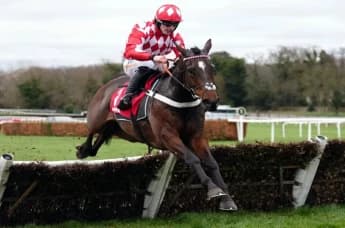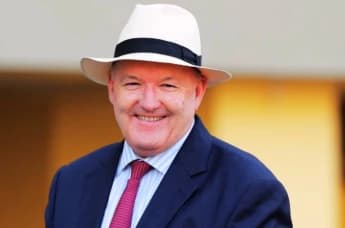Jockey Welfare in Ireland Faces Calls for Reform and Consolidation

"Jockey welfare in Ireland faces critical scrutiny as the IHRB’s management practices and the need for consolidation of charity funds come to light, sparking debates on sustainable support for injured jockeys."
The intricate issues surrounding jockey welfare in Ireland have gained significant attention with the release of an independent report by Mazars, which examined the operations related to several charity funds within the sport. Central to this discussion is the Jockeys' Emergency Fund (JEF), which is overseen by the Irish Horseracing Regulatory Board (IHRB) along with other important organizations.
The transfer of €350,000 made by the IHRB to resolve pressing cash flow issues in January 2022 has led to considerable scrutiny, particularly as the funds were temporarily utilized to bridge operational deficits at the IHRB before being reimbursed three months later. A significant concern arises from the fact that neither Donal O'Shea, the Chief Financial Officer of the IHRB, nor the finance manager informed any of the relevant trustees about this action.
Darragh O’Loughlin, the CEO of the IHRB, defended the practice, acknowledging that the regulator has been involved in managing charity funds for a considerable time, a situation he referred to as “anomalous” but enduring. Although O’Loughlin conceded that the transfer should not have occurred, he emphasized the historical context of this arrangement, which has persisted for decades. This situation raises concerns about the future viability of such practices, particularly since the Mazars report questioned whether they can remain in effect as they currently are.
The discussion has ignited a significant debate within the sport, reflecting the principles of Irish Injured Jockeys (IIJ), a charity founded ten years ago. With a board that features prominent personalities like Ruby Walsh and Barry Geraghty, IIJ has emerged as a crucial organization in offering long-term care and support for jockeys transitioning careers post-injury. The charity emphasizes that the current fragmented structure of the jockey welfare sector, characterized by multiple funds and charities, is no longer viable.
“From a general perspective, we believe there are too many options, and consolidation would be beneficial,” stated Michael Higgins, General Manager of IIJ. Barry Geraghty, secretary of IIJ, shares this sentiment and considers the recent challenges as a driving force for essential change. “We’ve been aiming for that consolidation for some time now,” Geraghty noted. “Perhaps what has transpired has emphasized the necessity for it.”
The existing system is fraught with complexities. Jockeys encounter confusion due to the presence of various funds, such as the JEF, Drogheda Memorial Fund, and Jockeys’ Accident Fund (JAF), when seeking assistance for specific needs. Many of these funds, which were once charity-based, have transitioned into limited companies and rely mainly on deductions from prize money and rider fees for funding. The challenges of obtaining the appropriate support for medical costs, ongoing injury care, and post-racing career transitions frequently leave jockeys feeling exasperated, prompting questions about the current system's effectiveness.
Michael Higgins is of the opinion that consolidating the various funds would result in a more efficient system, ultimately aiding jockeys by establishing a more straightforward and accessible route to the assistance they require. He stated, “By merging the funds, jockeys would clearly understand where to seek help, what their rights are, and sidestep the confusion of dealing with multiple organizations.”
The IHRB has voiced its commitment to reform. O’Loughlin has suggested a review of the circumstances in the upcoming year, along with discussions regarding the possibility of consolidation. A spokesperson for the IHRB highlighted that, although measures have been taken to address immediate recommendations, a crucial question persists: should the regulatory body be in charge of managing charity funds at all?
The ongoing discussion highlights the necessity of creating a viable framework for jockey welfare, one that guarantees effective governance and accountability while meeting the needs of jockeys during and after their careers. Although the conversation is still ongoing, there is a shared understanding within the sport that the existing situation is no longer sustainable.
In other racing developments, the possibility of Vauban participating in the Stayers’ Hurdle at Cheltenham in March is still being evaluated. Although he had a disappointing run in the Melbourne Cup, trainer Willie Mullins has not dismissed the idea of entering this renowned race. Mullins feels that a longer distance might align better with Vauban’s strengths compared to the shorter Champion Hurdle, where he faced challenges last year.






